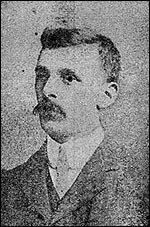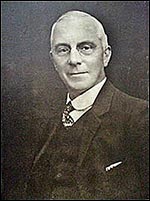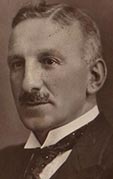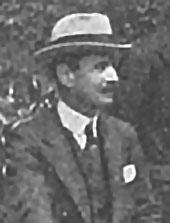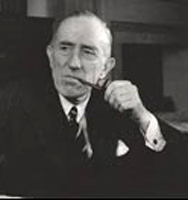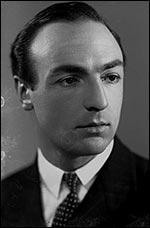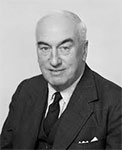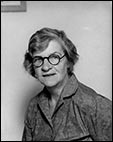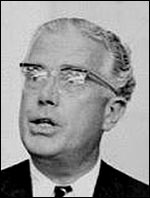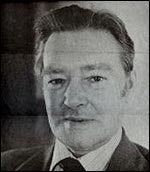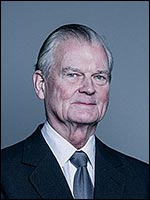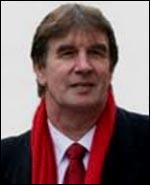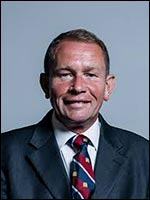Information researched from the Internet and presented by Margaret Jones (Craddock) |
||||||||||||||||||||||||||||||||||||||||||
|
||||||||||||||||||||||||||||||||||||||||||
|
KETTERING CONSTITUENCY (1918 – present)
|
||||||||||||||||||||||||||||||||||||||||||
| The constituency covers the major town of Kettering, the smaller towns of Desborough, Rothwell, Burton Latimer and smaller settlements. A semi-rural seat, the preponderance of constituents live in the towns and a minority of the wards form a wide array of rural communities that have civil parish or hamlet status. The constituency created in 1918 included the generally Labour-majority industrial town of Corby until the 1983 general election when Corby gained its own constituency. The Kettering Constituency is predominantly middle-class well within managerial/directorial commuter zones for London and the West Midlands. Industry continues in some sectors ranging from, for example, lingerie, food production, rigid containers, abattoirs, to the Weetabix factory in Burton Latimer, but the industrial activity of the area, as with the rest of the county, is reduced. ALFRED EDWARD WATERSON (1918-1922) CO-OPERATIVE
Alfred Waterson was the first Co-operative Party MP and was from Derby where he was a railwayman and activist in his trade union and also served as a town councillor. He took the Labour whip in Parliament, ahead of any decision of Co-operative Congress to progress a formal alliance with the Labour Party. OWEN PARKER (1922-1923) CONSERVATIVE
Mr. Parker was the son of the late Alderman Charles Parker, and was born at Northampton in 1860, receiving his education at Chichele Grammar School, Higham Ferrers. Here he doubtless had instilled into him those high and lofty principles which ever actuated his life. He entered the Town Council in 1897, and was elected Mayor the same year. So well did he carry out his duties that he was re-elected the following year to this important office. In the Coronation year of the King he was for a third time elected Mayor, and represented the borough at the Coronation ceremony in Westminster Abbey. On the recommendation of the Lord-Lieutenant of Northamptonshire, Earl Spencer. K.G., Mr. Parker was the same year placed upon his Majesty's Commission of the Peace for the county. He was elected as a Member of Parliament for Kettering in 1922.
Born in Stockport, Cheshire, Sam Perry began his education with a scholarship at the Stockport Grammar School but was forced to give up school at the age of ten when his father died, and became a cotton spinner like his father. He became involved in the local co-operative movement with the Stockport Co-operative Society then Birkenhead and on the creation of the Co-operative party in 1917 was appointed its first national secretary. When appointed senior official in the Party, Perry moved his family to London with nine-year old Fred. They lived on the co-operatively run Brentham Estate in Ealing where Fred was able to use the tennis courts and cricket pitch. Sam contested the two-member Stockport constituency at a by-election in 1920 and again at the subsequent 1922 general election. LABOUR CO-OPERATIVE MEMBER OF PARLIAMENT FOR KETTERING Sam Perry was successful in the 1923 General Election being elected defeating the Conservative MP Owen Parker. He lost his seat at the 1924 election to the Conservative Sir Mervyn Manningham-Buller, then won it back at the 1929 election. Defeat came in the 1931 General Election when the seat was won by the Conservative John Eastwood.
CONSERVATIVE MEMBER OF PARLIAMENT FOR KETTERING He was elected in 1924 and served until 1929 until Samuel Perry was again elected. Later in 1931 he was elected MP for Northampton and he resigned in 1940 upon becoming Steward of the Manor of Northstead. Mervyn Manningham-Buller died in Chelsea, London in 1956 aged 80. JOHN FRANCIS EASTWOOD OBE (1931-1940) CONSERVATIVE
John Eastwood was born in 1887 in Guildford Surrey. He married in 1912 Alice Leonora Zacyntha Boyle of the family of the earls of Cork & Orrery, and had issue by her. Following her death in 1934 he married her cousin Dorothea Constance Cecil Butler. He was elected at the 1931 General Election as Member of Parliament for Kettering defeating the Labour MP Samuel Perry. He held the seat at the 1935 General Election but resigned in 1940 to become a Metropolitan Police magistrate. He died in Chelsea, London aged 64. JOHN DENNIS PROFUMO CBE (1940-1945) CONSERVATIVE
Major Profumo was appointed as Officer of the Order of the British Empire (OBE) (military) “in recognition of gallant and distinguished service in Italy”, specifically for his service on Field Marshal Sir Harold Alexander’s staff commanding the 15th Army Group. In 1947 Acting Colonel Profumo was awarded the Bronze Star Medal by the United States “in recognition of distinguished services in the cause of the Allies.” CONSERVATIVE MEMBER OF PARLIAMENT FOR KETTERING In 1940, while still serving in the Army, Profumo was elected to the House of Commons as a Conservative Member of Parliament (MP) for Kettering at a by-election on the 3 March. He inherited his father’s Italian noble title in 1940 thus becoming the 5th Baron Profumo on 27th March 1940. Profumo was then the youngest MP, and by the time of his death he had become the last surviving former member of the 1940 House of Commons. At the 1945 election Profumo was defeated at Kettering by the Labour candidate, Dick Mitchison. ELECTED AS MP FOR STRATFORD-ON-AVON Later in 1945 he was Chief of Staff to the British Mission to Japan. In 1950 he left the Army and at the general election in February 1950 he was elected for Stratford-on-Avon in Warwickshire, a safe Conservative seat. He was a well-connected politician with a good war record and was highly regarded in the Conservative Party. These qualities helped him to rise steadily through the ranks of the Conservative government that came to power in 1951. He was appointed Parliamentary Secretary to the Ministry of Civil Aviation in November 1952, Joint Parliamentary Secretary to the Ministry of Transport and Civil Aviation in November 1953 Parliamentary Under-Secretary of State for the Colonies in January 1957, Parliamentary Under-Secretary of State at the Foreign Office In November 1958, and Minister of State for Foreign Affairs in January 1959. In July 1960, he was appointed Secretary of State for War and was sworn of the Privy Council. In 1954 he married the actress Valerie Hobson. THE PROFUMO AFFAIR In July 1961, at a party at Cliveden, home of Viscount Astor, John Profumo met Christine Keeler, a 19-year-old model with whom he began a sexual relationship. The exact length of the affair between Profumo and Keeler is disputed, ending either in August 1961 after Profumo was warned by the security services of the possible dangers of mixing with the Ward circle, or continuing with decreasing fervour until December 1961. Since Keeler had also had sexual relations with Yevgeny Ivanoy, the senior naval attaché at the Soviet Embassy, the matter took on a national security dimension. In December 1962 a shooting incident in London involving two other men who were involved with Keeler brought the affair to the forefront but was not pursued until March 1963 when the Labour MP George Wigg claiming to be motivated by national security aspects of the case referred to the rumours linking Keeler and Profumo. It became apparent to Harold Macmillan, the prime minister, that Profumo’s position was untenable. On 15 June 1963, Profumo was forced to admit that he had lied to the House in March when he denied an affair with Keeler, which at that time was an unforgivable offence in British politics. He resigned from office from the House, and from the Privy Council. He confessed to his wife, who stood by him. No breach of national security was apparent. The scandal rocked the Conservative government, and was generally held to have been among the causes of its defeat by Labour at the 1964 election. Profumo maintained complete public silence about the matter for the rest of his life. CHARITY WORKER Shortly after his resignation, Profumo was invited to work at Toynbee Hall, a charity based in the East End of London, as a volunteer. He worked there for the rest of his life, becoming the chief fundraiser using his political skills and contacts to raise large sums of money. He was able to live on his inherited wealth. His wife also devoted herself to charity until her death in 1998. In the eyes of some, Profumo’s charity work redeemed his reputation. He was appointed a Commander of the Order of the British Empire (CBE) in 1975. In that year, the former Conservative Prime Minister Margaret Thatcher invited him to her 70th birthday dinner, where he sat next to the Queen. He appeared rarely in public, particularly in his last years when he used a wheelchair. His last appearance was at the memorial service for Sir Edward Heath on 8 November 2005. On 7 March 2006, Profumo suffered a stroke. He died two days later at the age of 91. GILBERT RICHARD MITCHISON, BARON MITCHISON, CBE, QC (1945-1964) BRITISH LABOUR Gilbert Mitchison, born in 1894, was a British Labour politician educated at Eton College and New College,
LABOUR MEMBER OF PARLIAMENT FOR KETTERING He was the Labour Member of Parliament for Kettering between 1945 and 1964, beating the young incumbent, John Profumo, at the 1945 election. In Parliament, Mitchison sponsored the New Streets Act as a private member’s bill. He was given a life peerage, created Baron Mitchison, of Carradale in the County of Argyllshire on 5 October 1964. He served on the executive of the Fabian Society. In 1916 he married the writer Naomi Haldane. Mitchison died in Westminster in 1970 aged 75. NAOMI MITCHISON
She was a prolific writer of poetry, plays, short stories, stories for children, historical and contemporary, as well as novels despite or because of her busy life. Meanwhile she had worked devotedly for her socialist husband in his constituencies, first King’s Norton, Birmingham, and then Kettering, where she was admired by the comrades for the brilliance of her intellect and the sincerity of her character. At Dick Mitchison’s death she continued her writing, diversifying into documentaries and more than one volume of her own memoirs. Honours came her way from four Scottish universities, two Oxford colleges and the French Academy. She died in 1999. SIR GEOFFREY DE FREITAS, KCMG (1964-1975) LABOUR Sir Geoffrey de Freitas was born in 1913, the son of Sir Anthony and Lady Edith de Freitas. He was educated at
PARLIAMENT Sir Geoffrey had success representing the Labour party in General Elections in 1945 (Nottingham), 1950 (Lincoln). He was nominated to be British High Commissioner to Ghana in 1961 and was knighted in that year. He resigned his seat in the Commons on 20 December 1961 taking the sinecure of Steward and Bailiff of the Manor of Northstead. He took up Commonwealth Relations posts. LABOUR MEMBER OF PARLIAMENT FOR KETTERING In 1964 Sir Geoffrey received a surprise message from the Labour Party in Kettering. Their Member of Parliament, Dick Mitchison, was going to the Lords and they were without a candidate at the forthcoming general election. He was asked to put his name forward. Having relinquished his Commonwealth Relations post he was duly selected from a field of 73, and returned to the House of Commons. Hugh Gaitskell, who had warmly endorsed his leaving the House previously to go to Ghana, had died the previous year and Harold Wilson, the new Labour leader and now Prime Minister, had no inclination to honour his predecessor’s commitment to the former cabinet member. He was given no post on the front bench, though he was asked to lead the Labour Party delegation to the assembly of the Council of Europe in 1965 and the following year was elected its President. A position he retained until 1969. In 1971 his reluctance to be nominated for election as Speaker of the House of Commons led to a reappraisal of the system. He was a delegate to the European Parliament from 1975 to 1979. He retired from politics in 1979 and died in Cambridge three years later in 1982. The sundials on the four faces of the tower of St Margaret’s Church, Westminster, were the gift of Sir Geoffrey in 1982. A plaque in the north porch of the church records the gift which was to commemorate the Ecumenical Service held on 16 November 1974 for the 20th annual session of the North Atlantic Assembly of which Sir Geoffrey was President from 1976-1978. WILLIAM DENNIS HOMEWOOD (1979-1983) BRITISH LABOUR
ROGER NORMAN FREEMAN, BARON FREEMAN PC (1983-1997) CONSERVATIVE
CONSERVATIVE MEMBER OF PARLIAMENT FOR KETTERING Following an unsuccessful attempt to be elected as MP for Don Valley in 1979, Freeman was elected as Conservative MP for Kettering in 1983. As Ministry of State in 1990 he was responsible for steering through the House of Commons the Railways Bill providing for the privatisation of British Rail and enacted as the Railways Act 1993. In the 1993 Birthday Honours Freeman was sworn of the Privy Council. He was brought into the Cabinet by John Major as Chancellor of the Duchy of Lancaster in 1995. He inaugurated the process of privatisation of HM Stationery Office, though as a former minister for MOD Procurement, one of HMSO’s major customers, he could be adjudged to have had a conflict of interest. He misjudged the effect of privatisation on HMSO, which rather than preserve the business as a whole, and protecting jobs, hastened the already-established process of splitting the business into its various parts, resulting in the destruction of some, and the sale of others to foreign owners. The loss of jobs was massive. PARLIAMENTARY POSTS HELD 1986-98 Parliamentary Under-Secretary (Ministry of Defence) (Armed Forces) 1988-1990 Parliamentary Under Secretary (Department of Health) 1990 Ministry of State Department for Transport 1990-1994 Minister of State (Department for Transport) (Public Transport) 1994-1995 Minister of State (Ministry of Defence)(Procurement) 1995-1997 Chancellor of the Duchy of Lancaster and Minister (Public Service) HOUSE MEMBERSHIPS COMMONS 1983-1997 1997-2001 Vice-Chair, Conservative Party COMMITTEE MEMBERSHIPS LORDS 2006-2016 European Union Committee 2006-2010 EU Internal Market Sub-Committee 2015-2016 High Speed Rail (London-West Midlands) Bill Select Committee 2016 Narrowly defeated in the 1997 General Election, Roger Freeman was shortly afterwards raised to the peerage as Baron Freeman, of Dingley in the County of Northamptonshire in the 1997 Prime Minister’s Resignation Honours. Lord Freeman was the chairman of the Charity SkillForce from 2004 to 2016. PHILIP ANDREW SAWFORD (1997-2005) BRITISH LABOUR
LABOUR MEMBER OF PARLIAMENT FOR KETTERING Phil Sawford contested Wellingborough in 1992, losing to the Conservative incumbent Peter Fry. In the 1997 election he won the Kettering seat defeating the conservative Cabinet minister, Roger Freeman. There were three recounts thus the result was one of the last to declare. In 2001 his majority was increased. Over eight years as an MP he established a reputation as a constituency focused MP who championed local issues. After losing his seat in the 2005 election he was re-selected as the Labour Parliamentary Candidate in 2007. The boundaries of Kettering Constituency changed at the 2010 General Election but Sawford was defeated again. He was on the left of the Labour Party, and a member of the Socialist Campaign Group. He is now retired but takes an active interest in local politics and serves as Vice Chair of the Kettering Constituency Labour Party. PHILIP THOMAS HOLLOBONE (2005-2020 to present) CONSERVATIVE
POLITICAL CAREER Philip’s political career began in the London Borough of Bromley where he served as a councillor between 1990 and 1994. He unsuccessfully contested Lewisham East at the 1997 General Election and in 1998 he sought re-election to Bromley but was defeated. He was again defeated in 2001 for the Kettering constituency. Following this defeat, Hollobone moved to Kettering and secured election in 2003 to Kettering Borough Council for the rural ward of Buccleuch and went on to represent the suburban ward of Piper’s Hill from 2007. He also became Chairman of the Kettering Conservative Constituency Association in 2001-2. He was re-elected as a councillor in 2011, but did not re-stand in 2015. CONSERVATIVE MEMBER OF PARLIAMENT FOR KETTERING At his third attempt Hollobone secured election to the House of Commons in the 2005 General Election when he defeated Phil Sawford by 3,301 votes. He made his maiden speech in 2005. He was criticised for some of his subsequent speeches as “boosting ratings on the internet by saying very little, very often”. His response was that he tried to speak as often as possible on behalf of constituents and take part in many different debates. Because of Hollobone’s efforts to represent constituents in Westminster rather than representing Westminster in the constituency, he became known as the Conservatives most rebellious MP. Re-election came in the 2010, 2015, 2017 and 2019 General Elections. In February 2018, following the announcement that Northamptonshire County Council had brought in a “section 114” notice, putting it in special measures following a crises in its finances, Hollobone was one of seven local MPs who released a statement arguing that the problems with the authority were down to mismanagement from the Conservative councillors who led it rather than funding cuts from the Conservative Government. They further argued that government commissioners should take over the running of the Council. Philip Hollobone is President of the Kettering Branch of the Royal British Legion, a member of the Kettering Book Society and the Kettering and Desborough civic societies, and has been an occasional player for Kettering Rugby Football Club. He is also a Trustee of Solve It, the Kettering-based solvent abuse charity and the Jeanette Crizzle Trust, which is campaigning for improved rates of organ donation. He arranges visits for local people to see the Houses of Parliament and hundreds of local residents have taken advantage of this. Phillip has been keen to raise in Parliament issues important to local people such as building over-development in Northamptonshire, the funding of Northamptonshire Police, local NHS dentistry, congestion on the A14, the future of sub-post offices in Northamptonshire, the future of Kettering General Hospital, GPs in Northamptonshire, the involvement of local people in planning housing developments, help for small business in Northamptonshire, planning applications for windfarms in Northamptonshire, firework safety, the adoption of local residential roads by the county council, organ donation, and the control of immigration. Phillip has been pressing Government Ministers particularly hard for extra infrastructure investment into the Kettering area and has welcomed Government announcements for the £110m widening of the A14 Kettering by pass from 2013 and the £800m upgrade and electrification of the Midland Mainline railway through Kettering from 2017. POLITICAL VIEWS Philip Hollobone is regarded as being on the right wing of the Conservative Party, and is a member of the socially conservative Cornerstone Group. He has advocated the privatisation of both the NHS and the BBC and policies such as bringing back capital punishment and military conscription. In 2013, Hollobone was one of four MPs who camped outside Parliament in a move to facilitate parliamentary debate on what they called an “Alternative Queen’s Speech” – an attempt to show what a future Conservative government might deliver. Some 42 policies were listed including reintroduction of the death penalty and conscription, privatising the BBC, banning the burka in public places and preparation to leave the European Union. He was a supporter of the Better Off Out campaign, which supported Britain’s withdrawal from the EU. PARLIAMENTARY POSTS HELD COMMONS 2006-2010 Transport Committee 2010-2019 Panel of Chairs - (Giving him an annual payment of £15,000 in addition to the salary of £77,379) 2010-2012 Backbench Business 2015-2016 Backbench Business Committee EXPENSES In April 2009, Hollobone was reported to be the thriftiest MP in terms of expenses. On average MPs claimed £144,176 whilst he claimed £47,737. At the time of writing, Phillip Hollobone remains as the Conservative Member of Parliament for Kettering. |
||||||||||||||||||||||||||||||||||||||||||
